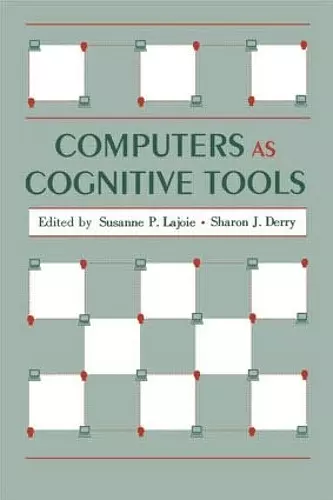Computers As Cognitive Tools
Susanne P Lajoie editor Sharon J Derry editor
Format:Paperback
Publisher:Taylor & Francis Inc
Published:1st Jun '93
Currently unavailable, our supplier has not provided us a restock date
This paperback is available in another edition too:
- Hardback£145.00(9780805810813)

Highlighting and illustrating several important and interesting theoretical trends that have emerged in the continuing development of instructional technology, this book's organizational framework is based on the notion of two opposing camps. One evolves out of the intelligent tutoring movement, which employs artificial-intelligence technologies in the service of student modeling and precision diagnosis, and the other emerges from a constructivist/developmental perspective that promotes exploration and social interaction, but tends to reject the methods and goals of the student modelers. While the notion of opposing camps tends to create an artificial rift between groups of researchers, it represents a conceptual distinction that is inherently more interesting and informative than the relatively meaningless divide often drawn between "intelligent" and "unintelligent" instructional systems.
An evident trend is that researchers in both "camps" view their computer learning environments as "cognitive tools" that can enhance learning, performance, and understanding. Cognitive tools are objects provided by the instructional environment that allow students to incorporate new auxiliary methods or symbols into their social problem solving which otherwise would be unavailable. A final section of the book represents researchers who are assimilating and accommodating the wisdom and creativity of their neighbors from both camps, perhaps forming the look of technology for the future. When the idea of model tracing in a computer-based environment is combined with appreciation for creative mind-extension cognitive tools and for how a community of learners can facilitate learning, a camp is created where AI technologists and social constructivist learning theorists can feel equally at home.
"This book will be a valuable resource to researchers and educators at all levels who are interested in statistical problem solving, how students best learn statistics, and how to assess student progress in statistics.
—Teaching Children Mathematics
ISBN: 9780805810820
Dimensions: unknown
Weight: 770g
410 pages